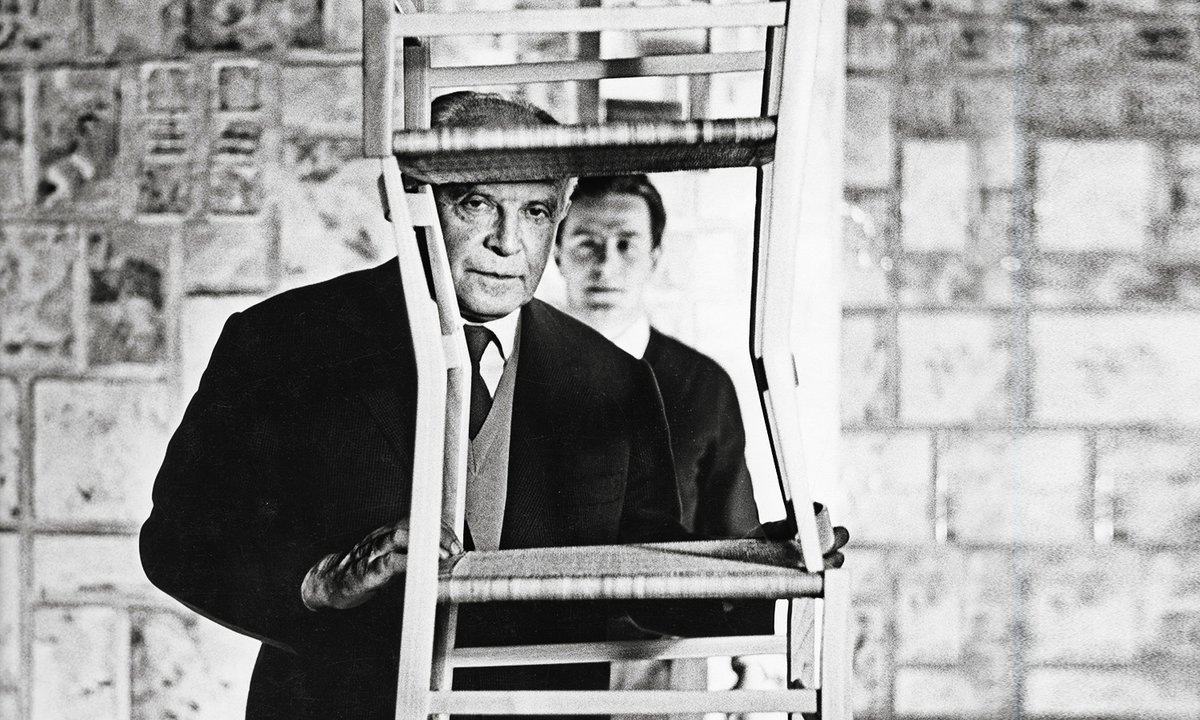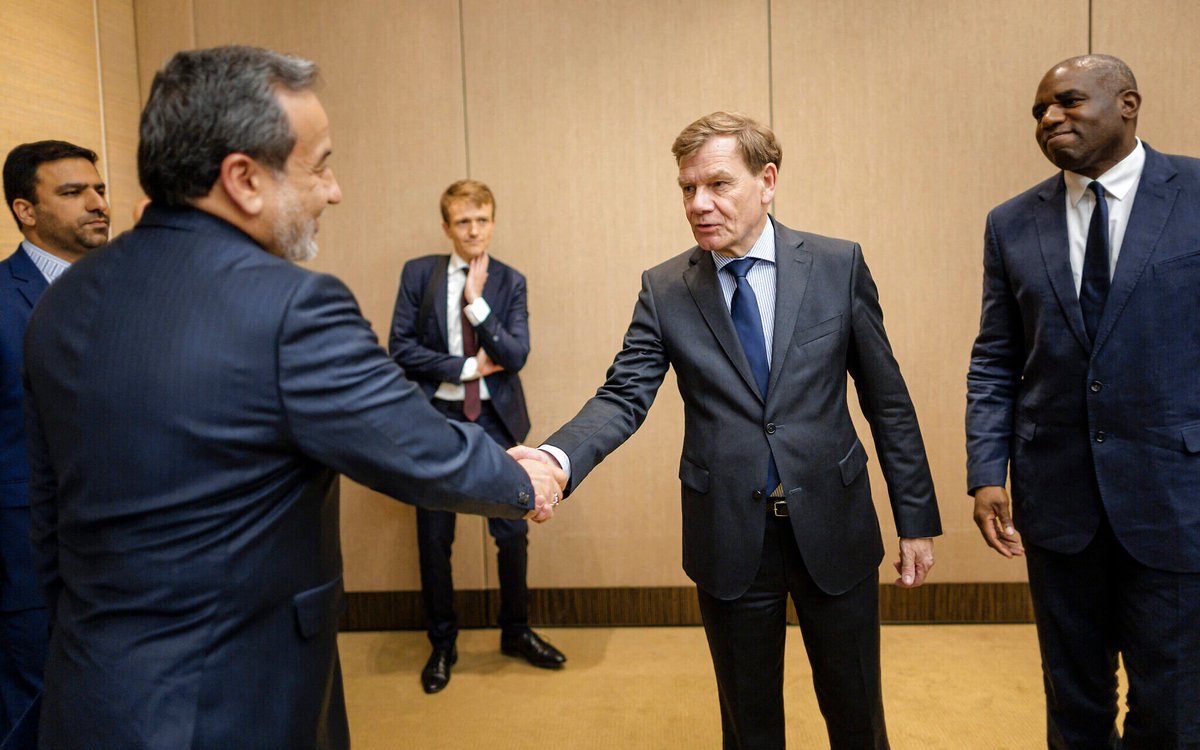
I invest in emerging economies in West Asia and study how sanctions are reshaping Iran and the world. CEO of @boursebazaar. Adjunct Prof @SAISHopkins.
3 subscribers
How to get URL link on X (Twitter) App



 2. As Iran sees it, Europe is set to reimpose sanctions when:
2. As Iran sees it, Europe is set to reimpose sanctions when:
 2. There's a view that Iran is a highly militarized country. In reality, a relatively small proportion of Iran's industrial base is dedicated to defense production. Mobilization of resources will be challenging for Iran, but Israel is fighting a country with latent capacity.
2. There's a view that Iran is a highly militarized country. In reality, a relatively small proportion of Iran's industrial base is dedicated to defense production. Mobilization of resources will be challenging for Iran, but Israel is fighting a country with latent capacity.

 2. The general theory of de-dollarization is that the increased use of economic weapons such as tariffs and sanctions by consecutive American administrations is spurring China to take the lead on the creation of an alternative financial system (which Russia, Iran etc. also want).
2. The general theory of de-dollarization is that the increased use of economic weapons such as tariffs and sanctions by consecutive American administrations is spurring China to take the lead on the creation of an alternative financial system (which Russia, Iran etc. also want).

 2. At first glance, the chart substantiates the claim that China is exporting a disproportionate volume of manufactured goods to the world, even compared to other big industrial exporters like Germany and Japan.
2. At first glance, the chart substantiates the claim that China is exporting a disproportionate volume of manufactured goods to the world, even compared to other big industrial exporters like Germany and Japan.
 2. If Trump was really aiming to resume maximum pressure, he would have signed a new EO to widen sanctions on Iran's oil sector, and Treasury would have designated Chinese ports and refiners pursuant to the EO in order to reduce volumes of Iranian crude flowing to China.
2. If Trump was really aiming to resume maximum pressure, he would have signed a new EO to widen sanctions on Iran's oil sector, and Treasury would have designated Chinese ports and refiners pursuant to the EO in order to reduce volumes of Iranian crude flowing to China.

 2. US political and business elites increasingly believe that the rules-based order and globalization has served to reduce the hard power gap between the US and its rivals, especially China. This threatens unipolarity.
2. US political and business elites increasingly believe that the rules-based order and globalization has served to reduce the hard power gap between the US and its rivals, especially China. This threatens unipolarity.
 2. This is a legacy of Iran's long and tortured push for market liberalization, which gained momentum in the early 2000s only to a hit wall when sanctions began to isolate the economy.
2. This is a legacy of Iran's long and tortured push for market liberalization, which gained momentum in the early 2000s only to a hit wall when sanctions began to isolate the economy. 
 2. To know if sanctions are working, we need to be precise about the goals.
2. To know if sanctions are working, we need to be precise about the goals. 
 2. As an oil exporter, Iran has long struggled to develop its manufacturing base.
2. As an oil exporter, Iran has long struggled to develop its manufacturing base.

 2. Typically, the US has used coercive tools like sanctions and export controls to deny economic opportunities and impose economic pain on target countries in response to some "malign behavior"—nuclear proliferation, terrorist financing, human rights abuses etc.
2. Typically, the US has used coercive tools like sanctions and export controls to deny economic opportunities and impose economic pain on target countries in response to some "malign behavior"—nuclear proliferation, terrorist financing, human rights abuses etc.

 2. The spate of Israeli attacks and assassinations may be humiliating, but Iran has repeatedly calibrated its responses to these provocations, avoiding a wider war.
2. The spate of Israeli attacks and assassinations may be humiliating, but Iran has repeatedly calibrated its responses to these provocations, avoiding a wider war.
 2. No city has depended on wood more than Venice.
2. No city has depended on wood more than Venice.

 2. The motivation to participate in a funeral, whether for Soleimani or Raisi, is far less about the individual that has died and far more about the shared social custom.
2. The motivation to participate in a funeral, whether for Soleimani or Raisi, is far less about the individual that has died and far more about the shared social custom.
 2. Old aircraft are not *necessarily* unsafe. The helicopter carrying Raisi was built in 1994.
2. Old aircraft are not *necessarily* unsafe. The helicopter carrying Raisi was built in 1994.

 2. Iran has faced tougher sanctions and a more acute security dilemma.
2. Iran has faced tougher sanctions and a more acute security dilemma.
 2. Boosting exports is how firms in sanctioned economies try to respond to flat domestic demand, currency volatility, and rising input costs.
2. Boosting exports is how firms in sanctioned economies try to respond to flat domestic demand, currency volatility, and rising input costs.
 2. Coinciding with the new executive order, @wallyadeyemo has an op-ed in the @FinancialTimes explaining what Treasury aims to achieve.
2. Coinciding with the new executive order, @wallyadeyemo has an op-ed in the @FinancialTimes explaining what Treasury aims to achieve. 
 2. Last year, Vietnam exported $791m of cashews to the EU and $885m to the US.
2. Last year, Vietnam exported $791m of cashews to the EU and $885m to the US.
